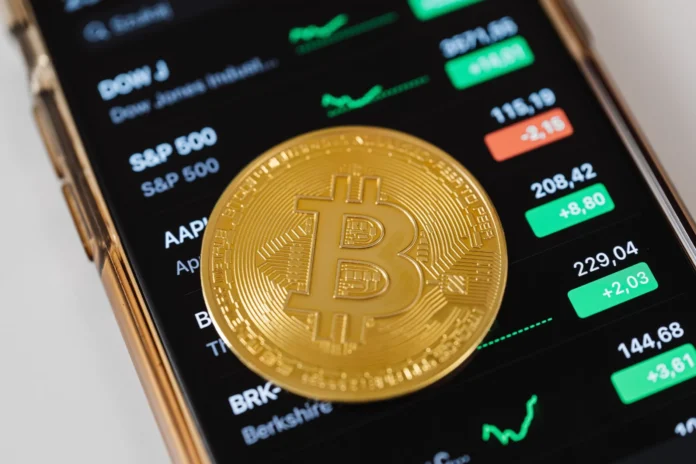Bitcoin (BTC) is a decentralized digital currency that operates on a peer-to-peer network, allowing users to send and receive payments without the need for intermediaries like banks. It was created in 2009 by an anonymous person or group of people using the pseudonym Satoshi Nakamoto. Bitcoin transactions are recorded on a public ledger called the blockchain, which ensures transparency and security.
Understanding how to buy Bitcoin is crucial for anyone looking to invest in or use cryptocurrencies. It involves various steps, such as choosing a reputable exchange, setting up a digital wallet, and understanding the risks associated with cryptocurrency investing. Without a clear understanding of the buying process, individuals may be vulnerable to scams, hacking, or other financial losses.
Understanding Bitcoin (BTC)

Here are some key points to understand about Bitcoin:
Blockchain Technology: Bitcoin transactions are recorded on a public ledger called the blockchain. This blockchain is maintained by a network of nodes (computers) that validate and record transactions in blocks, which are then linked together in a chronological chain.
Limited Supply: Bitcoin has a capped supply of 21 million coins. This scarcity is built into the system to mimic the scarcity of precious metals like gold and to prevent inflation. New bitcoins are created through a process called mining, where powerful computers solve complex mathematical puzzles to validate transactions and add them to the blockchain.
Decentralization: One of the key features of Bitcoin is its decentralization. Unlike traditional currencies that are controlled by central banks, Bitcoin is not issued or regulated by any single entity. This makes it resistant to censorship, manipulation, and government interference.
Pseudonymity: While Bitcoin transactions are recorded on the blockchain and are visible to anyone, the identities of the parties involved are pseudonymous. Users are represented by alphanumeric addresses rather than personal information. However, it’s worth noting that Bitcoin transactions can be traced, and with enough effort, the identities of users can sometimes be uncovered.
Volatility: Bitcoin’s price can be highly volatile, with dramatic fluctuations in value over short periods. Factors such as market demand, investor sentiment, regulatory developments, and macroeconomic trends can all influence its price. This volatility has made Bitcoin attractive to traders but also raises concerns about its suitability as a store of value or medium of exchange.
Use Cases: Bitcoin can be used for various purposes, including online purchases, remittances, investment, and as a hedge against inflation. Some businesses and merchants accept Bitcoin as payment, and there is a growing ecosystem of services and applications built around the cryptocurrency.
Security: Bitcoin transactions are secured by cryptographic techniques, making them resistant to fraud and counterfeiting. However, the security of individual accounts and wallets depends on the precautions taken by users, such as using secure wallets and implementing best practices for storing and managing private keys.
Factors to Consider Before Buying BTC

Buying Bitcoin (BTC) can be an exciting venture, but it’s essential to approach it with careful consideration. Here are several factors to contemplate before purchasing BTC:
Understanding: Ensure you have a solid understanding of what Bitcoin is, how it works, and its potential risks and rewards. Educate yourself through reputable sources, books, and online resources.
Volatility: Bitcoin’s price can be highly volatile, experiencing rapid fluctuations in short periods. Be prepared for price swings and assess whether you’re comfortable with the level of risk involved.
Investment Goals: Determine your investment goals and time horizon. Are you looking for short-term gains, long-term investment, or diversification of your portfolio?
Risk Tolerance: Assess your risk tolerance and financial situation. Only invest what you can afford to lose, and consider how a potential loss would impact your overall financial stability.
Security: Understand the importance of security in the cryptocurrency space. Research reputable exchanges and wallets, and consider using hardware wallets for added security.
Regulatory Environment: Stay informed about the regulatory environment surrounding Bitcoin in your country. Regulations can impact the legality and taxation of Bitcoin transactions.
Market Liquidity: Consider the liquidity of the Bitcoin market. Higher liquidity can make it easier to btc buy without significantly impacting its price.
Market Sentiment: Monitor market sentiment and news developments that could influence Bitcoin’s price. Factors such as institutional adoption, regulatory announcements, and technological advancements can impact sentiment.
Diversification: Avoid putting all your investment capital into Bitcoin alone. Diversify your investment portfolio across different asset classes to spread risk.
Long-Term Potential: Assess Bitcoin’s long-term potential as a store of value, medium of exchange, or hedge against inflation. Consider its adoption rate, network effects, and potential future developments.
Transaction Fees: Be aware of transaction fees associated with buying, selling, and transferring Bitcoin. These fees can vary depending on the exchange and payment method used.
Tax Implications: Understand the tax implications of buying and selling Bitcoin in your jurisdiction. Keep accurate records of your transactions for tax reporting purposes.
Conclusion

Understanding how to buy Bitcoin with a credit card is not merely about executing a transaction; it’s about navigating a complex landscape of financial technology and investment opportunities. As Bitcoin continues to gain traction as a decentralized digital currency, grasping the buying process becomes increasingly important for individuals looking to participate in the cryptocurrency market. Without a clear understanding of the steps involved, individuals may expose themselves to risks such as fraud, hacking, or financial losses.
Bitcoin, with its foundational principles of decentralization, limited supply, and pseudonymity, represents a paradigm shift in the world of finance. Yet, its volatility and regulatory uncertainties demand careful consideration before diving into the market. Factors such as investment goals, risk tolerance, and security measures must be weighed carefully to make informed decisions.
In this dynamic landscape, staying informed about market trends, regulatory developments, and technological advancements is paramount. While buying Bitcoin with a credit card offers convenience and accessibility, it also requires a thoughtful approach to risk management and financial planning.
Ultimately, the importance of understanding the BTC buying process lies in empowering individuals to navigate the complexities of the cryptocurrency market with confidence and prudence. By arming themselves with knowledge and adopting a strategic approach, investors can harness the potential of Bitcoin while safeguarding their financial interests in an ever-evolving digital economy.








